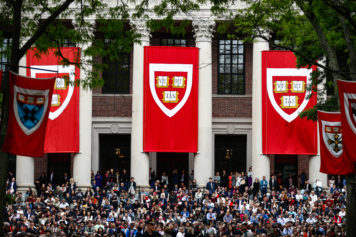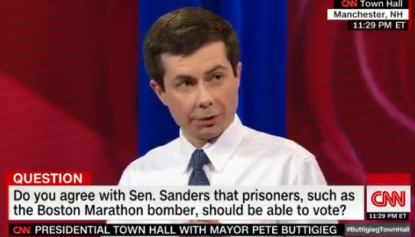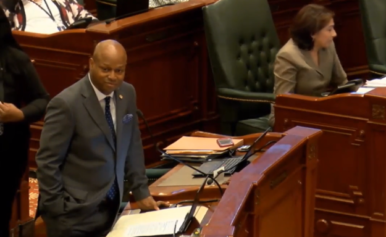
AP Photo/Rogelio V. Solis
The recent death of Supreme Court Justice Antonin Scalia, and the prospect of President Obama nominating another jurist to replace him soon, has thrown a monkey wrench into the machinations of the conservative legal movement. And part of that movement was to undermine civil rights and a number of issues that matter to Black people.
Efforts by Republican lawmakers to block anyone the President selects — and insist that Obama take no actions during the remainder of his administration — are stall tactics that rest on the hopes that a Republican president will be seated next year. Nevertheless, the 5-to-4 conservative majority on the high court is now history. And as Talking Points Memo reported, Scalia’s death has thwarted the legal strategy of the right wing, at a time when conservatives were poised to make substantial gains in their agenda, including cases related to issues such as affirmative action, voting rights, unions, reproductive rights and other issues.
John Hudak at Brookings takes it a step further by suggesting that Scalia’s death killed conservatism on the Supreme Court.
“Scalia’s death, regardless of his immediate replacement, signals something earth shattering for American jurisprudence over the next year. The Supreme Court will no longer be in the business of issuing conservative rulings,” Hudak said. “Before Saturday, the Supreme Court functioned according to a delicate balance. Four liberal justices and four conservative justices often held their breath to see how the Court’s swing vote, Justice Anthony Kennedy, would vote.”
According to Fivethirtyeight, Scalia joined the court as the most conservative justice after William Rehnquist. Although he did not leave the court as the most conservative judge — he placed third after Supreme Court justices Clarence Thomas and Samuel Alito — he was certainly the most vocal conservative, siding with the majority at least 75 percent of the time. With the Supreme Court now split in a 4-to-4 breakdown until a new justice joins the bench, any decision that results in a tie will allow the lower court ruling to prevail, according to TPM.
One of the cases under consideration is Evenwel v. Abbott. This one-person, one-vote case had the potential to transform the way in which states draw legislative maps, as Slate reported, but now this is not the case. While states have typically drawn legislative districts of generally equal populations, plaintiffs in this case argued that the maps should be crafted based on the number of potential voters, which would exclude immigrants who are not citizens, disenfranchised felons, and young people under 18 who cannot vote, thereby favoring white conservatives and hurting people of color. The lower court ruled in favor of using the total population, which would hold in the event of a tie on the Supreme Court. TPM noted that Evenwel was spearheaded by conservative advocate Edward Blum, who was involved in the gutting of the Voting Rights Act and attacks on affirmative action.
Another case to watch is the affirmative action case Fisher v. University of Texas-Austin, of which Blum was also heavily involved. The plaintiff is a white woman who wants the Supreme Court to eliminate the University of Texas affirmative action program because she claims the university denied her admission based on race. Justice Elena Kagan, a liberal, recused herself from the case due to her prior conflicted involvement as Solicitor General, leaving it up to Justice Anthony Kennedy who, as Slate mentioned, has not been an affirmative action friend.
In the area of immigration, U.S. v. Texas is a challenge to President Obama’s executive actions preventing the deportation of undocumented immigrants. A lower court already ruled against the White House. As I noted, with Scalia no longer on the court, conservative efforts to curb presidential power on executive orders are diluted.
Finally, in a case in which public sector union rights are at stake, Friedrichs v. California Teachers Association, the absence of Scalia favors unions. The 9th Circuit appeals court ruled in favor of public servants paying union fees for collective bargaining even when they are not union members. If the union loses, right-to-work laws would apply to all government workers across the nation.


